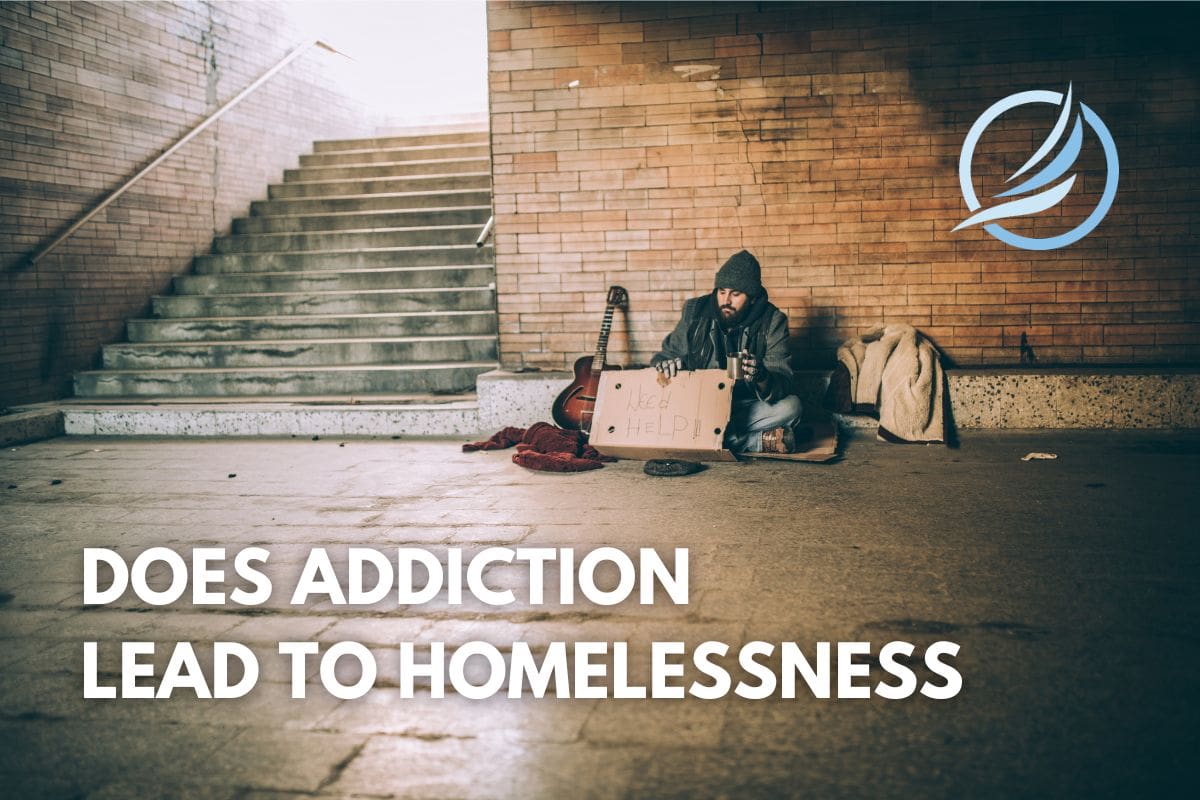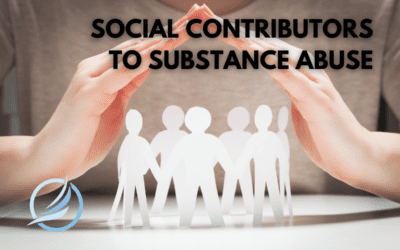The connection between addiction and homelessness is a complex and deeply concerning issue that impacts individuals and entire communities across the United States. With approximately 580,000 people experiencing homelessness on any given night and around 20.4 million Americans aged 12 and older reported to have a substance use disorder (SUD), these two crises are one of the biggest public health challenges the country faces.
Homelessness and addiction are often intertwined, with many individuals who are homeless also struggling with substance abuse. Addiction can lead to financial instability, job loss, and broken relationships, making it difficult to maintain housing.
On the other hand, the hardships of homelessness can drive individuals toward substance use as a means of coping. This cycle creates a significant barrier to recovery and stability, turning these co-existing issues into one of the largest public health concerns in the country.
So, let’s explore how addiction can lead to homelessness, the factors that contribute to this connection, and what can be done to break the cycle.
How Are Addiction and Homelessness Related?
Like other social contributors to substance abuse, addiction and homelessness are closely linked, creating a cycle that is difficult to break for many individuals. The relationship between the two is often reciprocal—addiction can lead to homelessness, and homelessness can fuel substance abuse.
Addiction as a Cause of Homelessness
Substance use disorders (SUD) can disrupt many aspects of an individual’s life, leading to homelessness in several ways:
- Job Loss: Addiction can impair a person’s ability to maintain employment due to absenteeism, declining job performance, or behavioral issues at work. Without a steady income, paying rent or maintaining stable housing becomes nearly impossible.
- Financial Instability: Substance abuse is expensive, and many individuals struggling with addiction may prioritize purchasing drugs or alcohol over basic needs like rent or utilities. This often leads to eviction or housing insecurity.
- Broken Relationships: Addiction can strain relationships with family, friends, or partners who might have provided support. As these relationships break down, many individuals lose their safety net, leaving them with no place to turn.
Homelessness as a Driver of Addiction
Once individuals become homeless, the stress and hardships they face often exacerbate substance use:
- Coping Mechanism: The trauma of losing stable housing, coupled with the daily stress of living on the streets, can drive individuals to use drugs or alcohol as a way to cope. Substance use may offer temporary relief from the emotional and physical tolls of homelessness, creating a cycle of dependence.
- Limited Access to Healthcare: Without access to stable healthcare or addiction treatment, many homeless individuals cannot receive the support they need to break free from substance abuse. Lack of resources often makes it more difficult to find treatment, sustain recovery, or manage mental health issues that might co-occur with addiction.
- Social Isolation: Homelessness often leads to isolation from family and communities. This isolation can worsen addiction as individuals are removed from social structures that might otherwise offer support or accountability.
The Cycle of Homelessness and Addiction
For many individuals, addiction and homelessness create a vicious cycle that is difficult to escape. Addiction can lead to homelessness through financial hardship and broken relationships, while homelessness often worsens addiction due to the stresses and challenges of life on the streets. This cycle is further complicated by limited access to recovery resources, making it harder for individuals to regain stability.
Breaking this cycle requires a comprehensive approach, including accessible addiction treatment, mental health support, and housing assistance. Only by addressing both addiction and homelessness simultaneously can we hope to make a lasting impact on these intertwined public health crises.
Preventative Measures to Help Break the Cycle Before It Starts
Whether for yourself or a loved one, addressing substance use and instability before they spiral can make a significant difference in avoiding homelessness. Here are some preventative steps to consider:
- Recognize the Warning Signs: Early signs of addiction can include increased substance use, neglect of responsibilities, financial troubles, and changes in behavior or mood. Spotting these patterns early on can be crucial in seeking help before the problem worsens.
- Seek Support Early: If you’re facing challenges with substance use, seeking support from addiction treatment services, mental health professionals, or local community resources can provide the tools needed to regain control. Early intervention can help you avoid losing housing or employment due to addiction.
- Maintain Strong Social Connections: Isolation can increase the risk of both addiction and homelessness. Staying connected to supportive friends, family, or community groups can provide emotional support and accountability during difficult times.
- Access to Mental Health Care: Mental health conditions often co-occur with addiction. Seeking therapy, counseling, or psychiatric support early can reduce the likelihood of self-medicating with drugs or alcohol, helping to maintain stability in both your health and housing situation.
Finding Help for Addiction
Addiction and homelessness are deeply interconnected, but with the right support, it’s possible to break the cycle. If you or someone you love is struggling with addiction and facing homelessness, don’t wait until the situation worsens. The Freedom Center is here to help. Our compassionate team of professionals is dedicated to providing the tools and resources needed to regain stability, rebuild your life, and achieve long-term recovery.
Contact us today to learn more about our holistic approach to addiction treatment and how we can support you on your journey toward recovery and a stable future.


































